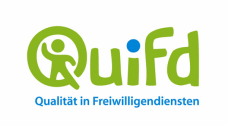Montag, 06. März - Mittwoch, 15. März 09:00 Uhr - 13:00 Uhr
Do No Harm
Who can register for this training?
The training is designed for practitioners in the fields of peacebuilding, development cooperation, human rights and humanitarian work.
Depending on methods and topic of the training, we limit the number of available spaces to a manageable size (a maximum of 20 participants). Register early to reserve your place!
Content
In each conflict, there exist factors that cause conflict and divisions – Dividers -, as well as factors that can bring conflict parties together, bridge gaps and have the potential to contribute to building peace – Connectors. Once support, in the form of projects and programmes in the realm of development cooperation, humanitarian relief and peacebuilding, enters a conflict situation, it interacts with this situation in either a positive or negative manner. Any support can fuel conflict and acerbate existing tensions/Dividers, or contribute to building peace by strengthening Connectors and weakening Dividers, thus it can have positive and negative (unintended) consequences. In this training, participants will learn how to analyse and understand the local context they are operating in, analyse the dynamics between the local context and their project/programme as well as their own conduct as individuals and professionals, and learn how to make informed choices to avoid (as far as possible) negative and increase positive impact.
Objectives
The aim of this thematic training is to strengthen the skills and knowledge of participants to enable them to plan, monitor and evaluate conflict sensitive peacebuilding, human rights and other programmes.
During the training, participants will:
- Understand the concept of Conflict Sensitivity
- Apply the Do No Harm framework to a case study
- Get to know the Six Critical Details
- Plan for integrating Do No Harm Processes as a long-term programming strategy and knowing how to apply it at the different stages of the programme/project cycle
Key Concepts
- Do No Harm Framework
- Dividers and Connectors analysis
- Do No Harm as interactive project and programme planning, monitoring and evaluation approach
- Understanding the impact of the programme/project on the conflict context through Resource Transfers, Implicit Ethical Messages and RAFT
- Re-designing projects/programmes to ensure conflict sensitivity
Workload
Methodology
The training will be practical, participatory and experience-based; the insights, existing skills and knowledge of both the facilitator and the participants will form an integral part of the process. It will be grounded in the principles of adult learning. The tools and methodologies used in the training will be practiced and applied to case studies and conflict contexts and projects the participants suggest and are familiar with (or that are their own contexts).
In the training, participants use a variety of tools, including the digital learning platform ILIAS, the video conferencing tool BigBlueButton, and the online whiteboard Miro. Participants should therefore have a good internet connection (1 Mbit down/upload or better). A headset is highly recommended. Prior knowledge about the use of these online tools is not required as participants will be invited to a technical introduction to the above mentioned tools before the training starts.
Deliverables
The training will be held online over a period of two weeks. Participants are required to actively participate in at least three out of the 4x 4h facilitated online sessions during two days of each week, as well as to conduct group work and self-guided learning for a further 2-3 hours each week. As part of the thematic training, participants will furthermore prepare an online presentation as well as a short video.
After a successful participation, participants receive a certificate.
Total expected weekly hours: 10 to 11 hours per week
Schedule
Technical Introduction on 3 March 2023 from 10:00 to 11:00 CET
Online Live Sessions from 6 March 2023 to 15 March 2023, every Monday and Wednesday from 09:00 to 13:00 CET
| Veranstalter: | forumZFD |
| Veranstaltungsadresse: | Live-Sessions |
| Veranstaltungsort: | Online |
| Kontakt: | zornbach@forumzfd.de; akademie@forumzfd.de |
| Ansprechpartner: | Marie Zornbach; Hannah Würbel |
| Anmeldung: | Online until 20th of February 2023 |
| Teilnahmegebühr: | 350,00€; Early Bird when booking before 6th of February 2023: 315,00€ |
